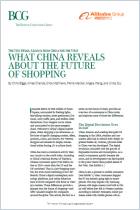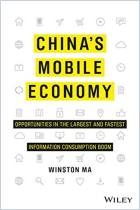
Recommendation
On Singles Day 2017, Alibaba once again broke sales records, generating ¥168.2 billion ($25.3 billion) in transactions across its e-commerce platforms. Despite this whopping success, Singles Day 2017 also received the most complaints from consumers criticizing Alibaba’s pricing strategy and complicated rules for obtaining and using coupons. Shoppers and store owners alike had trouble determining the final price of products prior to landing on the final payment page. Business blogger Chu Bu Liu Xiang from tech media site iYiou explains how Singles Day has changed and why small to midsized store owners are now dreading the event. getAbstract recommends this article to coupon clippers and bargain hunters.
Summary
About the Author
Chu Bu Liu Xiang (pseudonym) is a business blogger who writes for Ling Shou, a WeChat wemedia account that focuses on business, retail and tech reports. This article was republished on the Chinese tech media site iYiou.com.



















Comment on this summary or Start Discussion